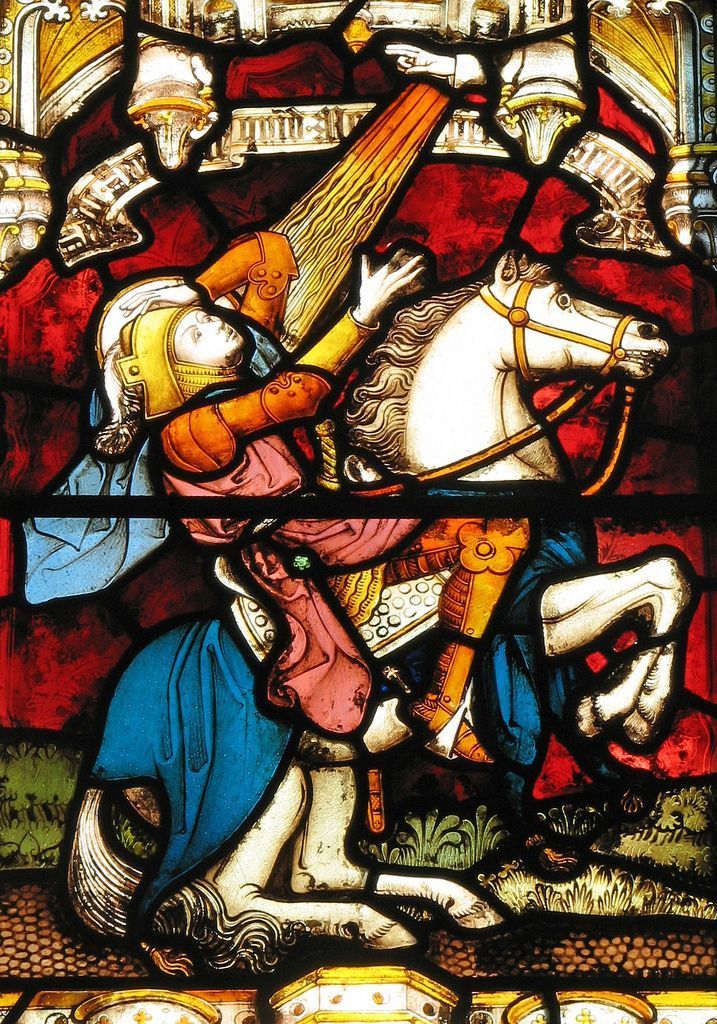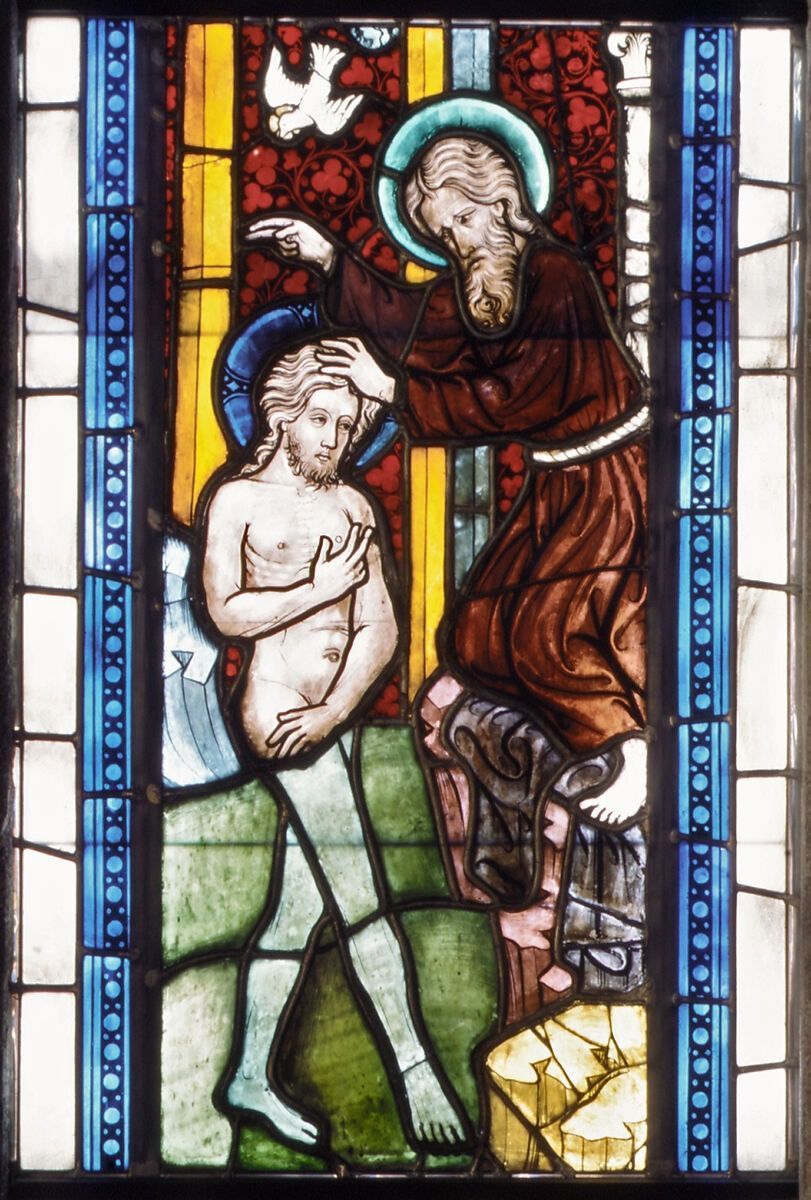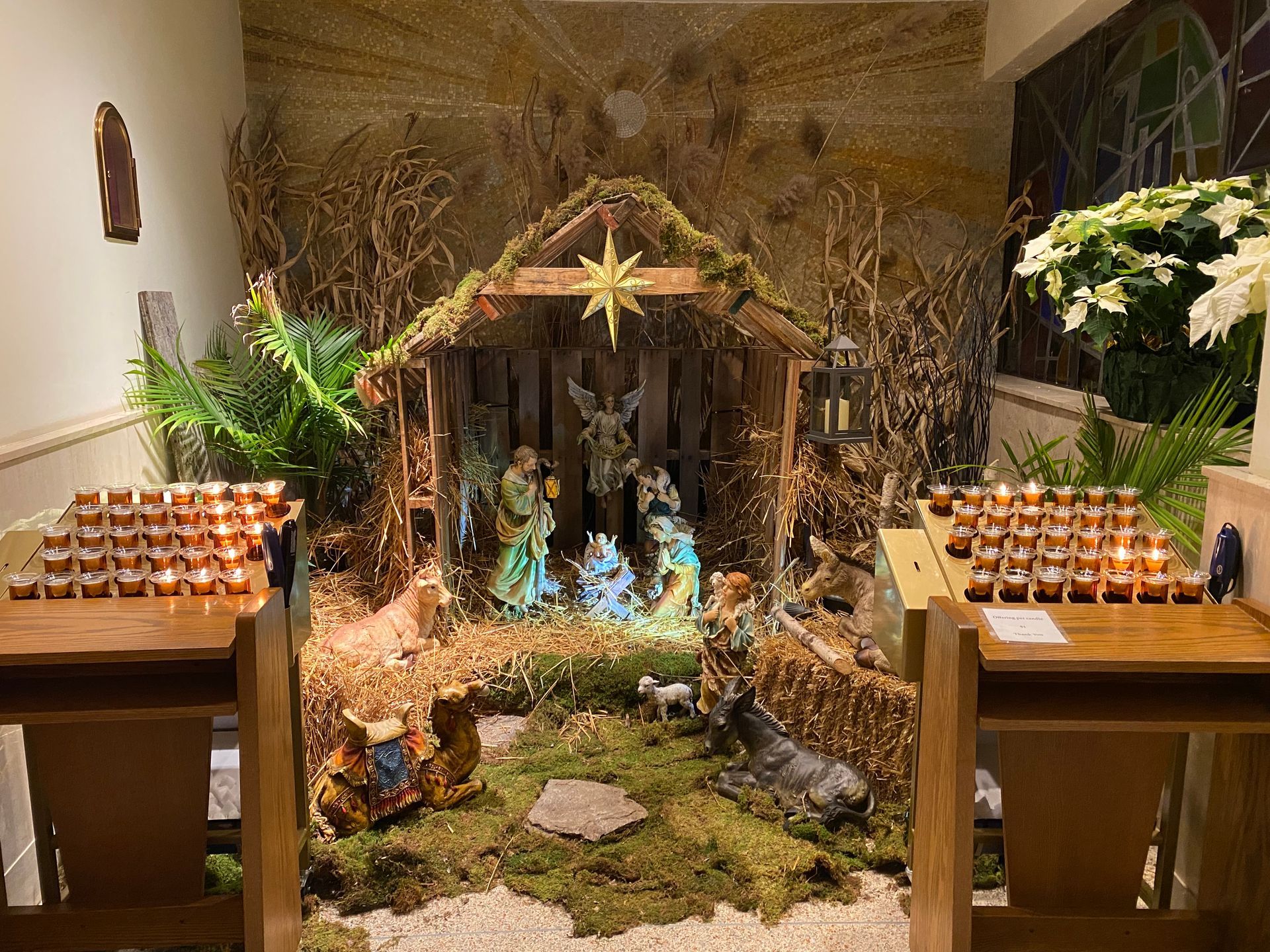A Barnraising Tale
Rev. Michael J.V. Clark • August 2, 2025

I have a friend I don’t see very often. I’m fond of him. He comes from an African nation, and we have been corresponding for over a decade. He’s also the wealthiest person I know. I won’t say too much about his biography, because I don’t want to identify him, but we first came to be friends because he had questions about Jesus’s teaching on wealth, and a mutual friend thought I might be able to help.
Perhaps the most famous quotation Jesus ever said is Matthew 19:24:
“[i]t is easier for a camel to go through the eye of a needle than for a rich person to enter the kingdom of God.”
This is the line that haunts my friend. It haunted Jesus’s followers too. They responded: “who then can be saved?” The Lord’s answer was my starting point:
“With man, this is impossible. But with God, all things are possible.”
Matt 19:26
In this reply, the Lord is very clear. Without God’s intervention, wealth presents insuperable barriers to salvation - indeed, to the extent of making it impossible. But it is not wealth per se that is evil; it is what it can do to the soul that is evil. In other words, grace is required. Grace is what alters the natural consequences, because God intervenes, either directly or indirectly. God desires all men to be saved - the wealthy and poor alike - and he offers sufficient grace to all of us to respond to his invitation.
Today’s Parable of the Rich Fool is part of a landscape of comments the Lord makes on economic matters. It is easy to take one, or two verses, out of context and create a false narrative. Groups of Christians have tried to claim His teaching for their own - ‘see - he agrees with us here…’ but that can only be done by selective editing. I’ll say it plainly: Jesus is not a communist, and he’s not a capitalist, either. He is not against wealth, but it is not a sign of God’s favor either. In short, he’s just not that interested in it - and there’s the point. He demonstrates perfect detachment from it.
Delving more deeply into the Gospel story, you might be forgiven for thinking: why does the Lord respond with a parable about a rich fool, when the man in the crowd simply asked him to adjudicate a property matter? It’s a good observation. The parable does not seem to be directly on point.
The point arises because the narrator has not shared any background information about the questioner. He doesn’t even have a name. We only know he is a man because he’s asking about inheritance, and the way the Lord addresses him: simply as ‘man.’
The Lord knows the secrets of our hearts. Looking at the man, he sees the motivation behind the question, and the parable thus addresses what he has not said about himself - that he is greedy, and avaricious. The questioner is, of course, the rich fool building new barns. He is the one who has made himself rich in things that are not of God. He is the one who needs to hear the message of conversion.
To fully understand the parable, however, we need to consider the verses which follow, which are not included in the lection this week. The Lord’s warning against covetousness (which is the excessive desire for possessions) is given because he knows how incredibly strong that drive can be. We may think the problem is about possessing things, but the truth is the things begin to possess us, and blind us to eternal truths.
The next few lines in the discourse are actually about anxiety: “do not be anxious about your life, what you will eat, nor about your body, what you will put on.” He references the ravens who are amply fed by God, and the lilies of the field whose beauty has nothing to do with how hard they work.
Here we see the heart of the problem - a lack of Faith. We become covetous, and driven by the accumulation of things because we don’t really trust that God will provide what we need, when we need it. And if he does provide more than what we need, we fail to see that is an invitation from God to do even more.
What is a basic truth is that God does not distribute his goods evenly. We are not all equally attractive, or intelligent, or gifted - and the way that he distributes those goods is not an indicator of God’s favor. Wealth then is more of a challenge than a blessing. It can become the instrument of much good in the world, if only we let go, and trust the God to whom it all belongs, anyway. God’s blessing comes in the privilege he gives to choose how to direct the abundance of his gifts. We have no need of barns, because we don’t fear the future.
So we could boil down the Lord’s teaching on wealth to these four principles: (1.) don’t make an idol out of money - the rich fool has become consumed by a fortune he wrongly considers is the result of his cunning and skill; the more he stores up, the more anxiety he has, until the time comes when he ceases to be productive and instead has become fortune’s slave; (2.) don’t be greedy - everything that exists belongs ultimately to God, because He made the Earth, and everything that is in it; we are called to stewardship over the goods of the Earth, and we have a responsibility to direct what we don’t truly need to the propagation of the Gospel, and; (3.) don’t be stingy - the Lord does not want us to be worried about the future; if you have worked hard and done well once, of course you can do it again. If he has endowed you once, have you exhausted the generosity of the Most High God? If anything, God actually encourages us to be extravagant:
“Fear not, little flock, for it is your Father’s good pleasure to give you the kingdom. Sell your possessions, and give to the needy…For where your treasure is, there will your heart be also”
Lk 12:32,34
Finally (4.) don’t leave it to someone else to be charitable. All of us have a responsibility to be generous, no matter how large or small our fortune may be. Beware of the subtle cloak of envy - which hardens our hearts by making us bitter and resentful. Instead, fix your eyes on building up the kingdom, and the Lord from whom all blessings flow will satisfy every longing of your heart.
Recent Posts










